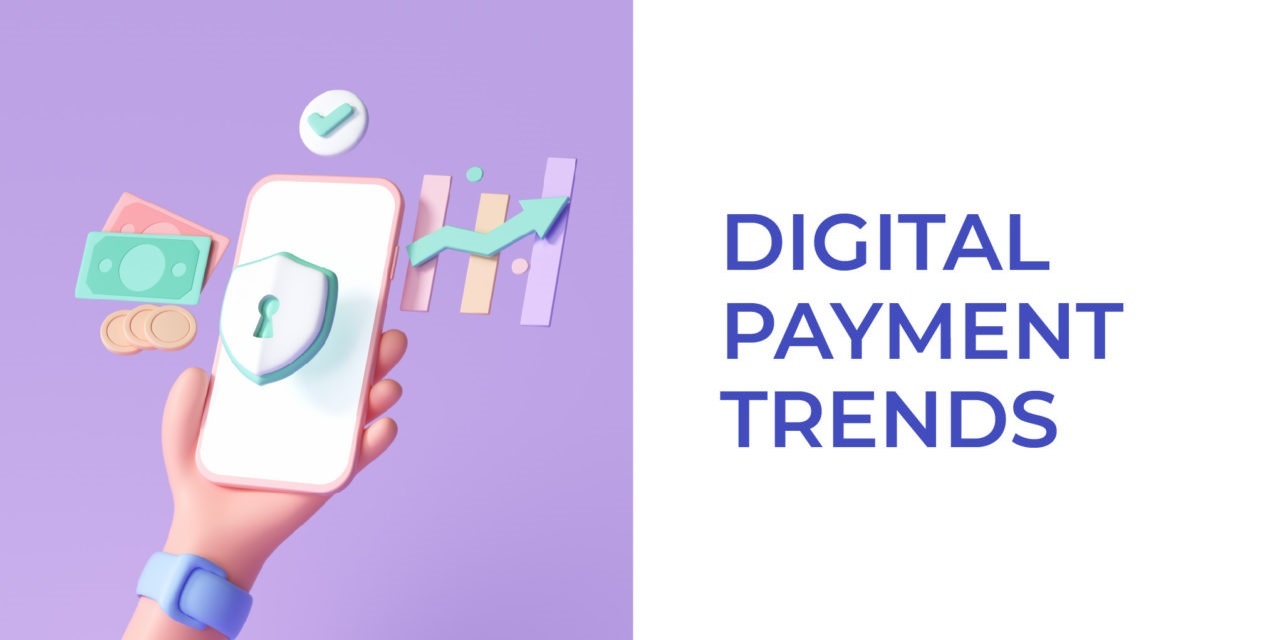Navigating the Future: Understanding Digital Platform Regulation Trends Globally
As a digital juggernaut, you’ve seen the industry evolve. But as platforms bloom, so does the call for control. This brings us to a crucial question: What are the global trends in digital platform regulation? I’ll steer you through the maze of rules that now shape our digital realm. We’ll unlock the puzzle of global governance and dice up the meat of today’s digital platform laws. Let’s not just skim the surface; it’s time to really grasp what keeps tech giants under the lens and how laws like GDPR and the Digital Services Act rewrite the rules. We will explore the world where data protection and content checks stand guard to shield us. Ready to surf the wave of change? Let’s dive in!
Grasping Global Governance: The Digital Platform Regulatory Landscape
Understanding International Digital Platform Laws
Right now, how we use the web is changing fast. Big changes are in the air. Countries around the world are laying down new rules. We call this digital platform governance. Think of it as road signs for the internet. Just like rules of the road keep drivers safe, these laws try to do the same for us online.
Let’s dive into what’s up with laws that wrap around the globe. These are the guardrails steering tech giants. Say hello to things like the Digital Services Act and the Digital Market Act. They are big deals in Europe and beyond. They tell companies how to protect us and what they can’t do with our info.
What does this all mean? If you’re using social media anywhere in the world, these laws watch out for you. They make sure your personal data stays safe. They keep a sharp eye on what’s fair in ads and business. That’s online platform accountability. It means playing by the rules – everyone, every time.
The Current State of Digital Platform Governance
So, what is happening right now? Let’s keep it simple. Picture a game where new players bring in new moves. That’s what’s going on. Rules are being made. These rules are for how tech companies should act. It’s not just about what they do. It’s also about making sure they don’t get too powerful. We don’t want one or two companies to call all the shots.
Governments are asking for more say in what’s okay and what’s not. With every post and click, they want users like you to feel safe. And with AI getting smarter, we need smart laws too. These laws help keep the tech in check. For privacy, countries use data privacy laws as a shield to keep personal details private.
Let’s boil it down to the basics. Whether it’s your chat messages or what you buy, the aim is safety and fairness. Lawmakers don’t want any surprises in your online space. They say no to sneaky ads or pricing that isn’t right.
The big picture? Imagine the internet as a playground. Now, it’s getting a bunch of new guidelines. So everyone can play without worry. The ground rules are setting the stage for a safer, saner online world for us all.
We’re talking strong fences for privacy and big no-no’s for bullies. It’s like a peace treaty for the world of clicks and likes. And it’s getting more teeth to bite back when things go wrong. Every day, the game gets clearer. The goal? A fair game for everyone, no matter where in the world they log in from.
Tech Giants Under the Regulatory Microscope
Social Media Regulation and Global Tech Giants Trends
We’re seeing big changes in how we keep tech giants in check. All around the world, leaders are making new rules to control these powerful companies. In Europe, for instance, they have something called the Digital Services Act. It’s a law that makes sure what you see and do online is safe and fair.
Asia and the Americas are also stepping up their game. They want to protect folks from harm online. This means saying no to fake news and bye to bullies on social media. It’s a tough job, but someone’s got to do it.
The Push for Online Platform Accountability
I bet you’ve heard about Facebook or Twitter getting in trouble. They sometimes let bad stuff slip through the cracks. Now, there’s a heavy push to make them take care of what’s on their sites.
Countries everywhere are telling these platforms: “You’ve got to watch what’s shared on your turf.” It’s like when parents tell their kids to clean up their room. With rules like the Digital Market Act, the big guys need to play nice with the smaller ones too. No bullying allowed in the tech playground.
This isn’t just about being fair. It’s also about keeping your secrets, well, secret. No nosy neighbors peeking over your digital fence. Data privacy laws are like guards, keeping your personal stuff locked up tight.
Tech folks are always thinking up new gadgets and gizmos. With that, AI is a big talker. It’s getting smarter, and we’ve got to be smart too. We’re making rules that help AI help us, without stepping on our toes.
From shopping online to talking to friends across the sea, rules keep our digital world spinning right. We’re building bridges, not walls, with these laws. It means stuff you buy from a shop far away will reach you with no fuss.
Remember, it’s not just about saying, “Don’t do this,” to the tech titans. It’s about making sure everyone plays fair. It’s about knowing that when you talk, laugh, or share online, someone has your back. The next time you click or swipe, think about that. The rules are there to let you enjoy the good stuff, worry-free.
Key Legislative Acts Shaping Digital Platforms
Impact of the GDPR and Digital Services Act on Platforms
What does GDPR mean for digital platforms? In simple terms, GDPR puts users first. Digital platforms must protect user data better. No breaches. If they slip up, they pay big fines. It’s all about keeping our personal stuff safe online.
The GDPR (General Data Protection Regulation) is a game changer. It made digital platforms rethink how they handle data. For a good reason, too. Before GDPR, rules around data were loose. Not anymore. Companies must now ask our OK before using our data. They have to tell us why they need it. And they can’t keep it longer than needed. If they mess up, they face heavy fines. We’re talking millions. So, companies have to keep data as safe as gold in a vault.
The Digital Services Act steps in here as well. This act tells platforms to show how they stop bad content from spreading. No more fake news sneaking up on us. This act says honesty is key. They must be clear on rules, and fair about how they apply them. If someone posts something that crosses the line, platforms need solid plans to handle it. Quickly.
Analyzing Compliance with the Digital Market Act
Now, let’s talk Digital Market Act (DMA). What’s the goal of the DMA? Fair play in the digital market. No single tech giant should call all the shots. The DMA wants tech to be fair, open, and competitive.
With new laws, platforms can’t just push out the little guy. They have to play nice. Think of DMA as a rulebook for fair competition. Big platforms, or ‘gatekeepers,’ have to follow special rules. Can’t abuse their power. Need to let new ideas in. No locking users into only their products. This gives us more choices. Good for innovation, good for everyone. If they don’t follow the rules? Big fines again. It means business must be fair, or they feel it where it hurts – their wallets.
Rules like GDPR and DMA are making digital spaces safer and fairer. They’re like traffic lights on a busy street, keeping accidents from happening. Tech giants have to take a step back. They must think about us and our rights. They can’t just do what’s easy. They have to do what’s right. This way, we all win. We get privacy, and a fair shot at trying out different services.
These laws are just the start. More are popping up all over the world. It’s tough on companies, sure. But it’s better for us. Now, let’s keep an eye out for how well these platforms stick to these new rules. It’s our job to hold them to it. Because when they follow the rules, we get a better, safer internet.
The Frontiers of Data Protection and Content Moderation
Upholding Data Privacy in Cross-border Data Flows
We live in a world hooked on data. We share info online every day. Did you know that when you send an email, it might bounce through several countries before it gets to your friend? This is what we call cross-border data flows.
Now the big question: Is our data safe when it travels? Yes, but it can be tricky. Countries have rules to protect data privacy. They aim to stop bad actors from getting to our info. But these rules differ. It’s like a game where every player has a slightly different set of rules.
Take Europe’s GDPR, for example. It tells companies how they must handle personal data. They need to protect it and respect privacy. It’s tough on those who don’t follow. Fines can be huge. Laws like these push companies to do right by us. They must keep our data safe, no matter where it goes.
Enforcing Content Moderation Policies for Consumer Protection
What is put online matters. We read, share, laugh, and learn online. But not all content is good for us. That’s where content moderation steps in.
What’s content moderation? It’s when digital platforms check what’s posted. They remove harmful stuff like hate speech or fake news. Think of it like a filter, keeping the bad out of our online spaces.
Why is it important? It keeps us, the users, safe. We all want to trust what we read and see online. We also need to feel free from harm. Platforms now are like big online parks. We need rules so that everyone can enjoy them safely. This is consumer protection in action.
Content moderation isn’t simple, though. What’s okay in one country might not be in another. Platforms have to know all the rules. They work hard to strike a balance. They let us speak our minds, but also put a stop to harmful speech.
Getting content moderation right makes the internet a better place. It’s a tough job, but we need it to help our digital world stay on track. It makes sure we all play fair and feel safe online.
We’ve taken a deep dive into digital platform regulation across the globe. From understanding laws to seeing how big tech faces scrutiny, we’ve covered it all. We looked at the GDPR and other big acts changing how platforms work. We also saw how data stays safe across borders and how content moderation protects you.
In the digital age, laws need to keep up with fast changes. It’s about keeping your info safe and making sure big companies play fair. We live online a lot, so it’s key that we understand these rules.
We’ll keep seeing shifts in governance as the tech world grows. It’s our job to stay aware and push for a more secure online life for everyone. Let’s keep our eyes open and be ready for what comes next in digital platform regulation!
Q&A :
What are the emerging global trends in regulating digital platforms?
In recent years, there has been a significant shift towards more stringent regulation of digital platforms, with a focus on data privacy, content moderation, competition, and taxation. Privacy laws such as the GDPR in Europe and the CCPA in California have set new precedents for data protection. Additionally, there’s an increasing push to address the spread of misinformation and harmful content online, with regulators seeking more accountability from platforms. Anti-trust issues are also in the spotlight, with big tech companies facing scrutiny over their market dominance. Taxation rules are being adapted to ensure digital enterprises pay fair taxes in the countries they operate in, despite their virtual presence.
How are countries adapting their laws to manage the challenges of digital platform regulation?
Countries are carefully tailoring their legal frameworks to tackle unique challenges posed by digital platforms. This includes updating existing laws or creating new legislation to cover digital activities comprehensively. For example, Australia’s News Media Bargaining Code mandates negotiations between tech giants and news outlets for content payment. The EU’s Digital Services Act and Digital Markets Act aim to create safer digital spaces with more competition. India, Japan, and others are also stepping up efforts, emphasizing data sovereignty and local regulation of digital companies.
What are the key areas of focus for regulators when it comes to digital platform governance?
When regulating digital platforms, regulators are focusing on several key areas:
- Data Privacy and Security: Ensuring personal data is handled responsibly and securely.
- Competition: Promoting fair competition by preventing monopolistic practices and ensuring smaller players have market access.
- Content Management: Addressing issues surrounding illegal and harmful content while balancing with freedom of expression.
- Misinformation and Fake News: Tackling the spread of false information that can have serious societal impacts.
- Consumer Protection: Safeguarding consumers from deceptive practices and ensuring transparent service delivery.
What impact does digital platform regulation have on consumer rights and privacy?
Digital platform regulation greatly impacts consumer rights and privacy by imposing stricter data handling requirements on companies, thus giving consumers more control over their personal information. Strong regulations like the GDPR empower consumers with rights such as the right to be forgotten, the right to access their data, and the right to data portability. These measures ensure greater transparency and security, thereby increasing consumer trust in digital services.
How are international co-operations shaping the future of digital platform regulation?
International cooperation is crucial in shaping a cohesive approach to digital platform regulation due to the global nature of the internet. Organizations like the G7 and G20 are platforms where countries can discuss and align their regulatory approaches. Moreover, the OECD’s guidelines on cross-border taxation and data privacy are significant examples of such international efforts. Such collaborations facilitate the creation of standards and best practices that can be adopted worldwide to ensure a balanced and effective regulatory environment for digital platforms.






